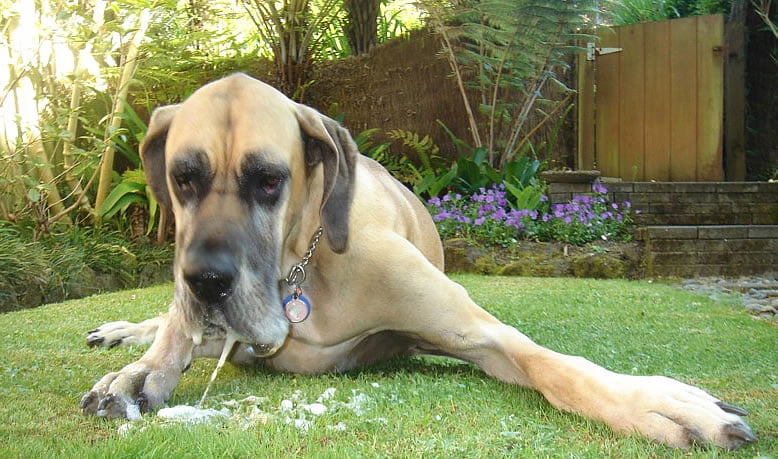Contact poisons
Never apply any substance to a dog’s coat, even if it is safe for humans, unless you know it will not cause harm to your contaminated with paint, tar, or motor oil, never use paint remover, concentrated biological detergent, methylated spirit, or any similar product to clean it off; these substances are highly toxic if ingested. The simplest treatment is to cut away the affected hair.
If this is not possible, treat in the following way:
If the substance is soft, wearing rubber gloves, rub in plenty of vegetable oil, then wash with soapy water – dog or baby shampoo is safe – and rinse thoroughly with fresh water;
If contamination is extensive, rub powdered starch or flour in with the vegetable oil to absorb the poison, removing the mixture with a wide-toothed comb;
If the coat is contaminated by something other than paint, tar, petroleum products, or motor oil, flush the region for at least five minutes with clean water, concentrating on the eyes, armpits, and groin.
Inhaled poisons
If a dog has inhaled a poisonous substance, this will most often result in breathing difficulties, but may also cause neurological problems, such as twitching and salivating. Do not put yourself at risk by entering an environment containing dangerous toxic fumes. Treat as follows:-
- Watch for signs of shock and treat if needed, keep the airway open, assist breathing, and give CPR if necessary;
- If the dog is convulsing, wrap it in a blanket and seek immediate veterinary assistance;
- Do not underestimate the damage caused by inhaling smoke or other irritant fumes like tear gas: serious and potentially fatal swelling may affect the air passages hours later;
- After any serious inhalation accident, seek urgent veterinary assistance.
Swallowed poisons
Dogs will eat anything, and this puts them at risk from poisoning caused by a number of chemicals used in our homes and gardens (see box), and in public areas. Keep poisonous substances out of your dog’s reach. Become familiar with any lawn or vermin chemicals used in your local parks; signs of their use may be posted. If your dog has eaten a poisonous substance, treat in the following way:
- If you know that poison, such as slug bait, rodenticide, or herbicide, has been swallowed in the last two hours, induce vomiting in the conscious dog by giving a large crystal of washing soda, concentrated salt, or 3% hydrogen peroxide – one teaspoon every 15 minutes until vomiting occurs ;
- Give one to two teaspoons of a slurry of activated charcoal in water – this will help to absorb any remaining poison;
- Telephone your vet for advice, and if vomiting has occurred, keep a sample to take to the surgery;
- If the swallowed poison is caustic (acid or alkali), or is petroleum-based, do not induce vomiting;
If the poison is unknown, see your vet as soon as possible.

Leave A Comment